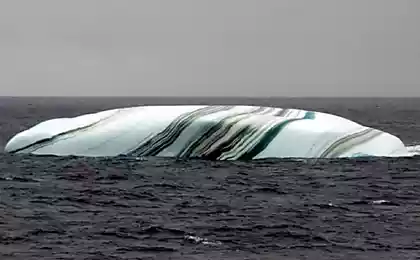1038
Icebergs do not sink in the sea water

iceberg - a huge block of ice floating in the oceans. Where do icebergs come from? Huge chunks of ice break off from glaciers that cover the continents and they go into free-swimming. For example, the northern icebergs break off from the Greenland ice sheet, and the south of the Antarctic and Southern icebergs in size is much greater than north. Not only depends on the properties of the iceberg duration, and distance of his voyage, it also depends on factors such as the speed and direction of flow in okeane.

The largest in size and promorozhennaya up to -60 C, the icebergs of Antarctica 'live' for many years, sometimes even decades. Then, as Greenland icebergs bit smaller and the temperature of the deep freeze reaches -30. They live much less and their term of melting is 2-3 years. Ice is much lighter than water, this fact explains why even the deepest waters do not freeze in the winter completely. If it were otherwise, it is, in fact, the ice falls to the bottom would have driven on the lower layers of the water surface, and gradually all the water in the reservoir would simply frozen. But when water freezes done quite the opposite. At the time of the conversion of water into ice, its volume increases by about ten percent, and as a result the density of ice is much smaller than that of water. This somehow explains why ice floats on poverhnosti.

At large depths of the ocean water temperature is below zero degrees, but the water was not frozen. It interprets this pressure, which constitute the upper layers of water. For the first time the question of why icebergs do not sink, said Mikhail Lomonosov. The density of the iceberg - 920 kg / m? .. In addition, a block of ice or iceberg consists of fresh water and is separated from the ice shelves.
Due to the fact that the sea water is denser iceberg and sinks completely. And then it is important to know that floats on the water surface only his tenth - top, all the rest - 90% of the blocks of ice hidden under the water. Meeting him for the vessels on the high seas is dangerous. If the ship did not notice the time moving the iceberg, when a collision it can get very serious injury or even death.
Source: po4emu.ru/index.php?id=68























